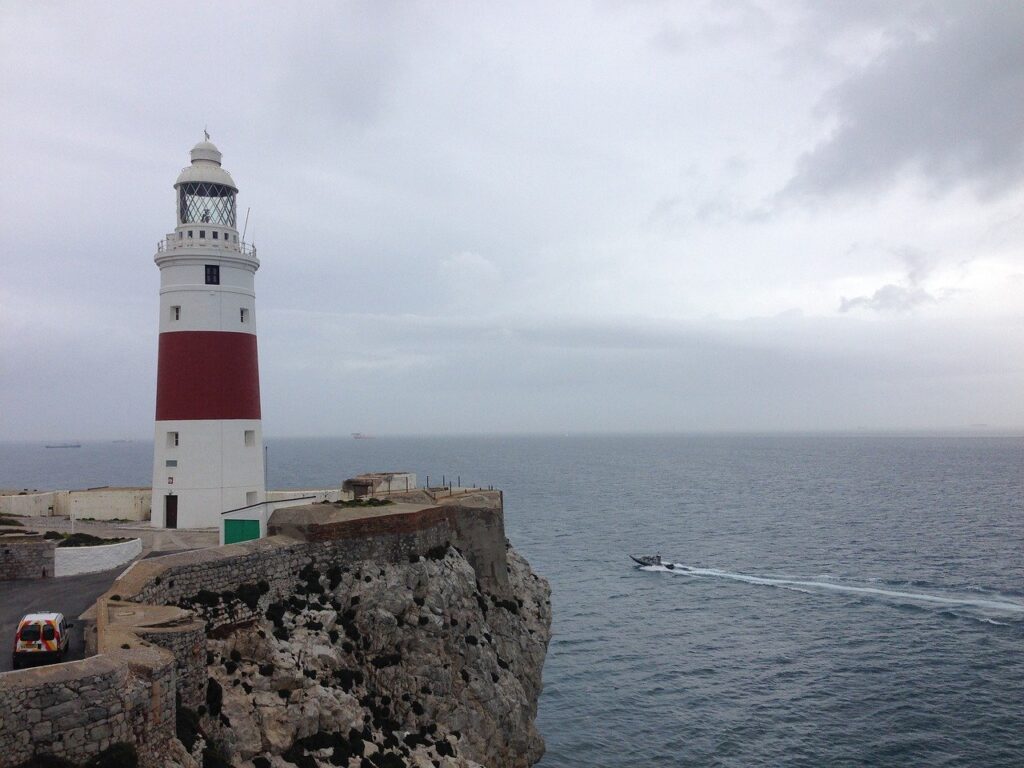Enhanced cooperation means Spanish individuals and companies may not transfer their fiscal residency to the British Overseas Territory, which will provide information on workers and assets
Spain will take Gibraltar off its list of tax havens after an agreement with the United Kingdom on tax cooperation entered into force earlier this month. While the British Overseas Territory was no longer on the European Union or the Organisation for Economic Cooperation and Development (OECD)’s lists of non-cooperative jurisdictions, it remained on Spain’s own blacklist, created in 1991.
The goal of this unprecedented treaty, which was published in Spain’s Official Gazette on Saturday, is to ensure that Gibraltar applies EU-equivalent legislation in terms of tax transparency and the fight against money laundering following Britain’s exit from the EU. The agreement also seeks to reinforce cooperation and information exchange to prevent the British Overseas Territory from becoming a magnet for Spanish tax evaders.
The agreement entered into force on March 4, two years after being signed by the Spanish and British governments, and it sets out clear rules to define when a natural or legal person shall be considered tax resident in Spain (read the full text of the treaty in English here).
.
Spanish tax residency
According to the text of the agreement, natural persons will be considered tax resident only in Spain in the following cases: when they spend over 183 overnight stays of the calendar year in Spain; when their spouse (from whom they are not legally separated) or the natural person with whom a similar relationship has been established, as well as any dependent ascendants or descendants, reside habitually in Spain; when the only permanent home at their disposal is in Spain; or when two thirds of their net assets, whether held directly or indirectly, are located in Spain.
As for legal persons and entities, they will be considered a tax resident only in Spain, even if they are established or managed in Gibraltar, if any of the following circumstances exist: the majority of the assets, whether directly or indirectly owned, are located in Spain; if the majority of the income accrued in a calendar year derives from sources in Spain; if the majority of the natural persons in charge of effective management are tax resident in Spain; or if the majority of the interests in the capital or equity, voting or profit-sharing rights are under the direct or indirect control of either natural persons who are tax residents in Spain or legal entities linked to tax residents in Spain.
The agreement notes that these rules do not apply to legal persons or entities that were incorporated in Gibraltar before 16 November 2018, as long as several conditions are met. It also underscores that any Spanish natural or legal persons who set up their residence in Gibraltar after the date of entry into force of the treaty will still maintain tax residency only in Spain.
.
Information exchange
There will be administrative cooperation through liaison bodies to deal with any discrepancies that may arise and to exchange tax information. Gibraltar will give Spanish tax authorities “annual information on workers registered in Gibraltar as residents in Spain, fully identifying every aspect of the underlying employment relationship or any trade, business, profession or vocation carried on or exercised by these workers, including details of duration, economic terms and employer.”
Gibraltar will also give Spanish tax authorities information on vessels, aircraft and motor vehicles registered in Gibraltar relating to tax residents in Spain. It will furthermore provide “direct and free access to the records of the Registrar of Companies in Gibraltar […] as well as to the Gibraltar Land Registry.”
This and other tax information will be exchanged every six months, but the first exchange of information on several of these points will take place within the next four months and cover the period beginning in January 2014.
Spanish diplomatic sources said that this agreement complements the preliminary agreement reached on December 31 to let Gibraltar join the Schengen space, and whose finer points are still being discussed by London and Brussels. The same sources said that the ultimate goal is to bring Gibraltar’s legislation in line with Spain’s on import duties, value-added tax and special taxes (on alcohol, fuel and tobacco products).
The treaty’s preamble notes that the treaty “does not imply any modification of the respective legal positions of the Kingdom of Spain or of the United Kingdom with regard to sovereignty and jurisdiction in relation to Gibraltar.”
The agreement was approved by Spanish Congress on July 15 and by the Senate on September 23, despite votes against by the conservative Popular Party (PP) and the far-right Vox.
Gibraltar, which sits at the southern tip of the Iberian peninsula, was ceded to Britain in 1713 during the War of Spanish Succession, although disputes over sovereignty and jurisdiction issues remain to this day. In the Brexit referendum of 2016, Gibraltarians overwhelmingly voted to remain in the EU.
.
By Miguel Gonzalexz, March 16, 2021, Published on El Pais






